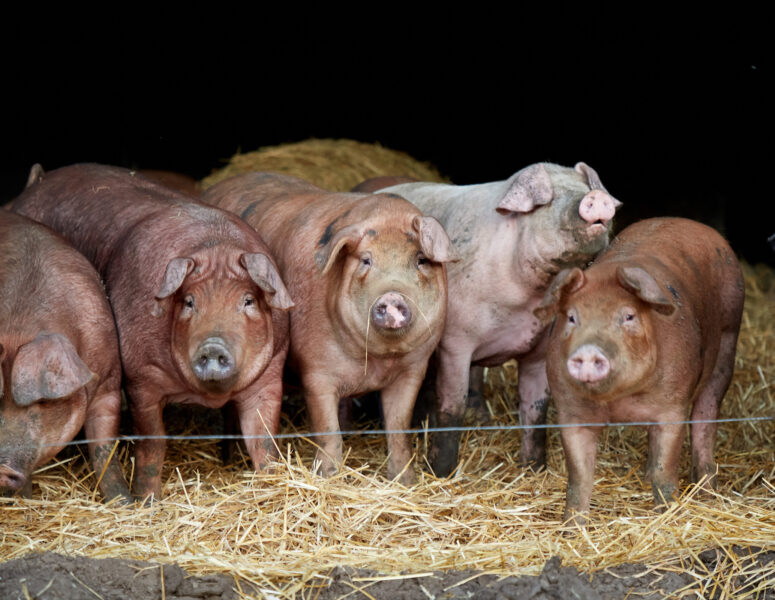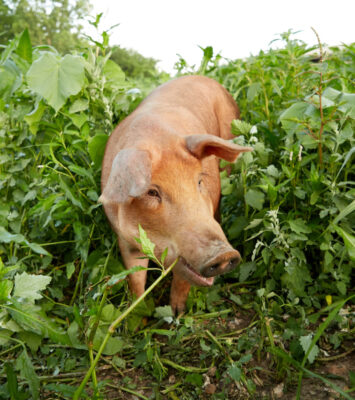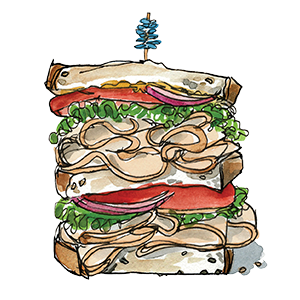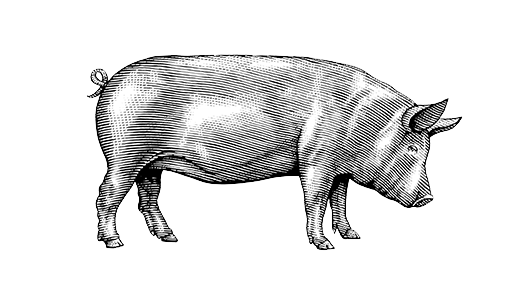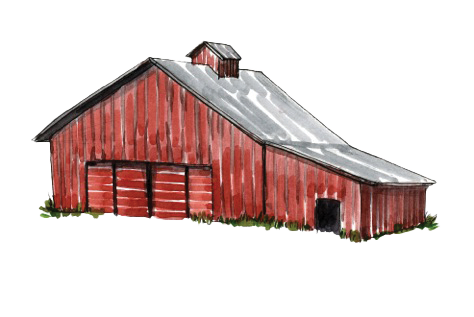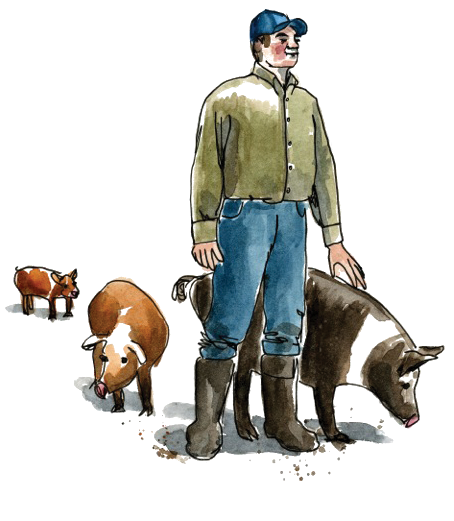The EATS Act could reach the Congressional floor as part of the upcoming Farm Bill. But if it passes, it could undo a lot of progress we’ve made to end cruel and inhumane factory farming.
What is the EATS Act?
The EATS Act is a broad piece of legislation that stands for “Ending Agricultural Trade Suppression.” It’s sponsored by Rep. Ashley Hinson (R-IA) and Senator Roger Marshall (R-KS), with support from some of the country’s largest commodity meat companies, who hope to include it in the upcoming 2023 Farm Bill.
The EATS Act is intended to curb states’ abilities to regulate the kinds of food products that are allowed to be sold there. But it also threatens or negates state and local laws like Proposition 12, and the rights of those voters to decide on the animal welfare regulations they want in their states.
So…what is the Farm Bill, and what does the EATS Act have to do with it?
The Farm Bill is a sweeping piece of legislation passed every five years that covers a huge range of issues affecting American farmers, from commodity programs to crop insurance to SNAP food assistance. And we mean big: it’s projected to add up to $1.5 trillion in total. The last version was enacted in 2018, meaning it was supposed to be renewed by the end of the September of 2023—but the controversial inclusion of the EATS Act has delayed that.
What would the EATS Act actually do, if passed?
In theory, the EATS Act is meant to help farmers sell their products without having to conform to a patchwork of state regulations. In practice, it would undo a lot of hard-won progress for animal welfare.
The EATS Act would roll back legislation that consumers like you have voted for, such as California’s Proposition 12 and Massachusetts’ Question 3. Not just that: it could have implications on all kinds of laws that have to do with plants and animals, including those concerning invasive pests and plants, kosher labeling, fishing regulations, and even consumer protections regarding puppy mills and pet food.
As a recent report from Harvard Law School’s Brooks McCormick Jr. Animal Law & Policy Program indicates, the language of the law is purposefully broad and vague: “The language of the EATS Act is broad enough to preclude more than a thousand state and local public health and safety regulations, many of which protect local producers from disease, pests, and other agricultural threats,” the report states. It could even have food safety implications.
EATS also threatens local food sourcing initiatives that every state has developed to promote and support local farmers. Simply supporting local would be considered preferential treatment, and thus a violation of the law.
“EATS also threatens local food sourcing initiatives that every state has developed to promote and support local farmers.”
The EATS Act and Proposition 12
The EATS Act is a direct result of California’s Proposition 12 being passed. Prop 12 prohibits the sale of eggs, veal or pork that has been confined in a cruel manner. (Learn more about Prop 12 in our blog post, Proposition 12 Explained.) Large, multinational meat companies that run factory farms are doing whatever they can to prevent the law from being enforced, since it means expensive changes to their operations.
In a bipartisan open letter to the House Agriculture Committee, 211 Senators and Representatives came together to voice their strong opposition to the EATS Act. As the letter points out, the goal of Proposition 12 and other laws like it is not to impose impossible standards on the industry, but to reflect the desire of voters for higher animal welfare.
Raising pork and other farm animals humanely, with room to roam, isn’t the easiest or cheapest way. But we believe it’s our responsibility, together as meat producers and meat eaters, to choose to raise animals with respect, instead of at the lowest price.
And it’s not just us: many other meat companies, large and small, have declared their opposition to the EATS Act, including Butcher Box, Niman Ranch, and Clemens Food Group. Along with these organizations, we believe the humane raising standards dictated by Proposition 12 are far from impossible, and that confining animals to crates or cages will never be humane. In fact, we’ve been raising our animals in this manner since day one—and we always will.
“We believe it’s our responsibility, together as meat producers and meat eaters, to choose to raise animals with respect, instead of at the lowest price.”
The EATS Act and the future of American family farms
The EATS Act could do irreparable damage on our already fragile system of American family farms. Farmers have made investments in changing their operations to comply with Proposition 12, and want the ability to sell humanely raised pork in a way that is transparent to consumers. A joint amicus brief submitted by small and independent farming businesses, unions, and coalitions puts it well: “Independent farmers are willing to meet this demand, and in doing so, can access some of the wealth and power that has accumulated only for pork integrators, and redistribute it back to local communities, businesses, and families.”
Anti-Prop 12 and pro-EATS Act rhetoric has often posed the division as city people telling rural American farmers how they should farm. But at True Story, “city” business and “rural” farmers work together in harmony. As a fully integrated food company (meaning one that has a direct hand in every part of our process, from the farms to the final products), our goal is to provide our communities and families with great-tasting meat they can also feel good about eating, while also allowing our family farmers to thrive.
Learn more about Our Farms.
Why the EATS Act matters now—and what you can do about it
Animals can’t speak for themselves. It’s our job to make decisions that ensure they are treated humanely, while still providing the high-quality protein that feeds and nourishes us. Learn more about Our Practices and what “raised with respect” means to us. You can also learn more about our humanely raised, Proposition 12 compliant pork here.
Most importantly, take a moment to tell your legislator that you oppose the EATS Act! The ASPCA makes it easy: just use their form to urge your Congress members to vote no to a Farm Bill that includes the EATS Act.
